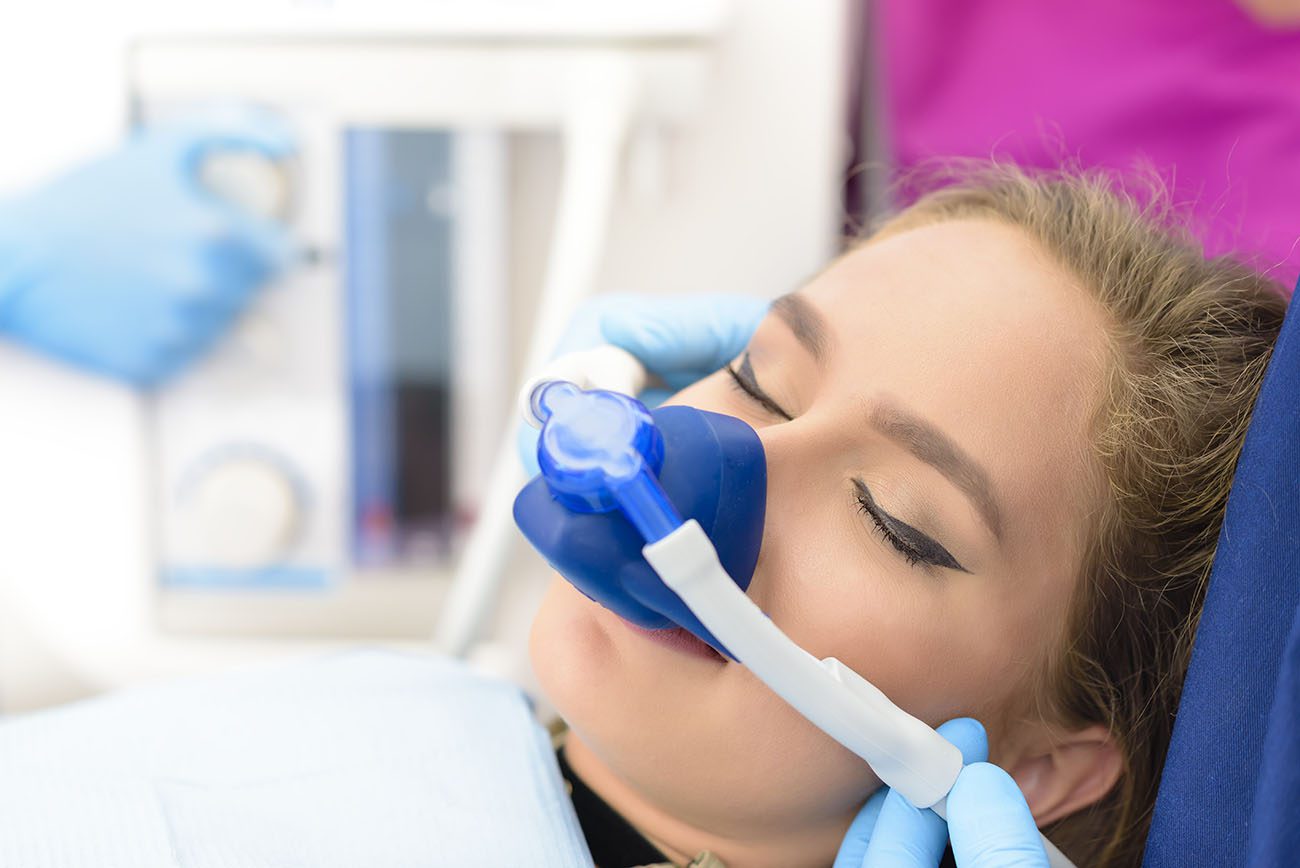Sedation dentistry often helps patients relax during dental procedures. It uses medication to achieve this. Various sedation levels exist. Inhalation sedation through nitrous oxide is often quick and easy to control. If you struggle with dental anxiety or a mobility issue, sedation dentistry may be able to help.
How Safe Is Sedation Dentistry?
Sedation dentistry is generally safe. Dentists receive specialized training in sedation techniques. They also monitor patients closely during procedures. However, like any medical procedure, risks exist. Common side effects include drowsiness, dry mouth, and nausea. Serious complications are rare but can include allergic reactions or breathing issues.
Dentists take several precautions to minimize risks. They review your medical history and current medications. They also use monitoring equipment to track your vital signs. This includes your heart rate, blood pressure, and oxygen levels. In case of an emergency, they are trained to act quickly.
The safety of sedation dentistry also depends on the type of sedation used. For example, inhalation sedation is considered very safe. The effects wear off quickly, and you can often resume normal activities soon after. Always discuss the risks and benefits with your dentist.
Who Should Consider Sedation Dentistry?
Sedation dentistry benefits many patients. It could help those with dental anxiety. Fear of the dentist is common. Sedation can make the experience less stressful. It also may aid patients with a low pain threshold. Dental procedures can be uncomfortable. Sedation helps manage pain more effectively. People with a strong gag reflex may also benefit. A sensitive gag reflex can make dental work difficult. Sedation can help relax these muscles.
Sedation can make longer procedures more comfortable. Complex dental work can take several hours. Sedation often allows you to sit through the procedure without discomfort. It is also useful for patients with special needs. People with physical or cognitive impairments may find it hard to sit still. Sedation can make the experience easier for them and the dentist. Children can also benefit from sedation dentistry. Pediatric dentists often use mild sedation to help children relax. This makes it easier to perform necessary dental work. Always consult with your dentist to determine if sedation is right for you.
Preparing for Sedation Dentistry
Your dentist will review your medical history. They will also discuss any medications you take. This helps identify any potential risks. Follow pre-procedure instructions carefully. These may include fasting for a certain period. Fasting may reduce the risk of complications. Arrange for someone to drive you home after the procedure. You may feel groggy for several hours. Wear comfortable clothing to your appointment. This helps you relax during the procedure. Inform your dentist of any changes in your health. This includes new medications or recent illnesses. Proper preparation ensures a smoother experience. Your dentist will provide specific instructions based on the type of sedation used.
Post-Procedure Care
You may feel drowsy after sedation. Rest for the remainder of the day. Avoid driving or operating heavy machinery. Drink plenty of water to stay hydrated. Follow any additional instructions from your dentist. This may include avoiding certain foods or medications. Report any unusual symptoms to your dentist immediately. This includes severe pain, swelling, or difficulty breathing. Proper post-procedure care ensures a smooth recovery. It also helps prevent complications. Your dentist will schedule a follow-up appointment if needed. This allows them to monitor your recovery and address any concerns.
Choosing the Right Dentist
Choose a dentist experienced in sedation dentistry. Check their credentials and training. Ask about their experience with sedation. A qualified dentist will explain the risks and benefits. They will also answer any questions you have. Look for reviews and testimonials from other patients. This can give you an idea of what to expect. A good dentist will make you feel comfortable and informed. They will take the time to understand your needs. They will also provide a detailed treatment plan. This includes the type of sedation used and the expected outcome.
Sedation dentistry is a valuable tool. It often makes dental procedures more comfortable. It is generally safe when administered by a trained professional. However, it is important to understand the risks. Always discuss your options with your dentist. For more information on sedation dentistry, visit Sandy Springs Cosmetic & General Dentistry. Dr. Maria Benefield and her team provide expert care. They ensure your dental experience is as comfortable as possible.

